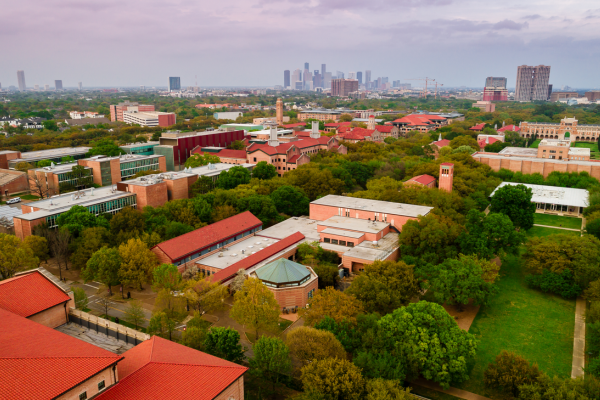Houston Universities and Colleges Witnessing Major Growth in Endowments
Published Feb 22, 2024 by Hailea Schultz
In recent years, Houston's academic landscape has witnessed a remarkable surge in endowments among its universities and colleges, garnering substantial support from donors for their efforts in driving innovation, advancing research and bolstering the region’s future workforce.
In 2021, Rice University exemplified this trend by achieving an endowment exceeding $8 billion. Building upon this success in 2022, the university maintained its strong position by securing the second-largest endowment assets in the Houston area, totaling an impressive $7.8 billion, as reported in the university's Endowment Report.
These substantial endowment assets serve as the cornerstone of Rice's financial stability, enabling the institution to fuel various initiatives aimed at advancement. From expanding faculty and introducing innovative programs to constructing cutting-edge facilities, the university's investments pave the way for groundbreaking research endeavors.
In 2023, Rice unveiled its most ambitious project yet—the Ralph S. O'Connor Building for Engineering and Science, sprawling 250,000 square-foot facility devoted to research, the university’s largest to date. Designed to foster collaboration among students and researchers, the building promises to be a hub for groundbreaking discoveries. Its realization was made possible by a generous $57 million donation from the founder of Ralph S. O'Connor & Associates.
San Jacinto College saw the largest growth in endowment assets among local universities and colleges, jumping from $7.4 million in 2019 to $25.2 million in 2022, according to the university’s Donor Impact Report.
In 2021, the college received its most substantial donation in history, a $30 million contribution from philanthropist Mackenzie Scott. This gift now supports the Student Success Fund Endowment to expand Promise @ San Jac Scholarships, which provides free tuition to recent graduates from local ISDs.
Additionally, in 2023, the college received $1.5 million from Houston Endowment to launch its second bachelor’s degree – a Bachelor of Applied Science in Education with an emphasis in early childhood education, which aims to fill the region’s teacher shortage.
As these institutions continue to see a rapid flow of philanthropic investments, the growth in endowments plays a pivotal role in enhancing educational opportunities and resources for students. Simultaneously, this serves as a catalyst for attracting top talent and cultivating a skilled pool of graduates prepared to meet the evolving needs of the region’s workforce.
Learn more about Houston’s universities and colleges.
 The Houston Report
The Houston Report




















